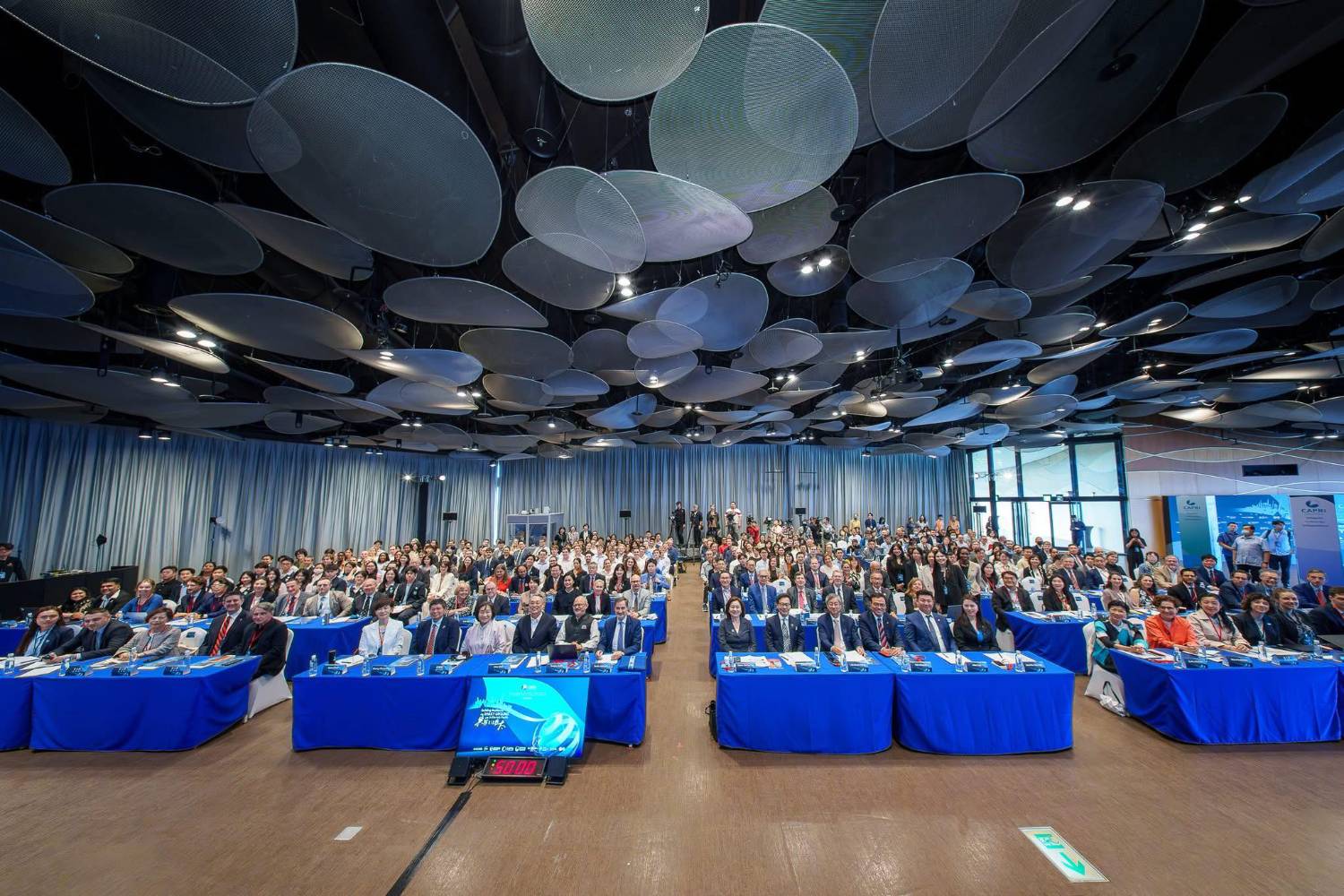
爵位土魯斯伯爵
職位二等國民議會議員
兼職三等下諾曼第總督
兼職三等參贊資政
兼職萬盛股份有限公司董事長
配偶

|

How much uncertainty can our systems withstand?
Beneath the vocabulary of climate tech incubation, smart health cities, de-risking, strategic autonomy, and multilateral reconstruction lies a deeper, collective question—one being asked not only by governments but increasingly by private sector leaders: How resilient are our systems in the face of rising uncertainty? How much of the policy vacuum can businesses absorb? And is it the system itself that is fragile, or our dependency on the illusion of normalcy?
The evolving “new Cold War” has brought the stability of the Asia-Pacific under a magnifying glass. And in this context, business leaders such as Daniel Tsai (Chairman of Fubon Group), Lim Boon Heng (Chairman of Temasek), and Takeshi Niinami (CEO of Suntory Holdings) returned repeatedly to one essential proposition: how can enterprises create certainty amid uncertainty?
This forum unfolded like a cross-sectoral atlas, mapping the intersections between geopolitics, sustainable governance, and market resilience.
With free trade no longer a guarantee of stable employment, nations have begun to anchor their resilience in diversified supply chains. But this transition requires businesses to act in lockstep.
Singapore remains a leading example—a resource-scarce nation that has shown how long-term strategic planning can buffer against external shocks. Meanwhile, Japan’s private sector is being reimagined as a custodian of social trust, investing in eldercare, youth welfare, and forging lasting partnerships with civil society. Its corporate strategy now includes multi-scenario planning as part of risk governance, and a growing emphasis on social enterprise models embedded within networks of nonprofits and public stakeholders.
Businesses are not here to replace governments. But when public institutions move too slowly—or not deeply enough—it is the private sector that must become the first responder. Whether it’s building data platforms, establishing post-pandemic recovery funds, or simply safeguarding the essential infrastructure of community life—this is no longer just CSR, nor an exercise in “doing a bit more good.” In an era of systemic fragility and resource realignment, strategic flexibility must be viewed as a core component of the social safety net.
As for public health—How can Pacific Island nations survive amid climate change and chronic health crises?
With the United States retreating from its leadership role in global health governance, partnerships with the WHO suspended, and funding pipelines severed, the Global South has become the first casualty of a growing governance vacuum. NGOs and multilateral collaborations are fragmenting, making the task of rebuilding health resilience systems all the more precarious. The collapse of policy support has real-world consequences—ones that demand not just moral reckoning, but structural reimagination.
This is not merely a regional issue. It is a mirror—reflecting the fragile state of our own public foundations, from healthcare systems overwhelmed by climate disasters to regional disease surveillance mechanisms still struggling in the wake of the pandemic.
As Taiwan’s Deputy Minister Lin Ching-yi aptly noted, “Regional co-defense” cannot remain an empty slogan—it must become a hard choice about resource redistribution.
How far can our enterprises go?
How much longer can our public systems be deferred?
In a volatile Asia-Pacific, what kind of presence do we want to become?
And what are we willing to relinquish in order to hold the line?
This is not the closing statement of a forum.
It is the beginning of a question we must ask ourselves.
我們的系統能承受多少不確定?
「氣候科技育成」、「智慧健康城」、「去風險化」、「策略自主」、「多邊重建」⋯⋯在這些語彙之下,其實是當代國家政府乃至於私部門企業都在追問:我們的系統能承受多少不確定?企業能撐起多少政策真空?脆弱的,是體制,還是我們對常態的依賴?
「新冷戰」格局對亞太穩定性的洞察,從富邦集團董事長蔡明忠、淡馬錫主席林文興、三得利會長新浪剛史等企業領袖,不斷回到一個核心命題——企業如何在不確定中創造確定?論述企業如何在不確定中創造確定,這場論壇像是將地緣政治、永續治理與市場韌性鋪展成一張跨域的網絡地圖。
自由貿易已無法創造穩定就業,國家韌性應該開始靠多元供應來源,但需企業配合。新加坡仍走在前面,它是資源小國的典範,示範如何以長期策略抵抗外部衝擊。而日本企業要轉型為「社會信任載體」,主動投入社會照護與弱勢兒童。同時也轉向「社會企業型態」,與NPO合作形成永續治理圈。將「多情境規劃」納入風險管理標準流程。強化企業與公民社會聯動,重建信任鏈。
企業不是「代替政府」,而是當體制不夠快、不夠深時,能先落地的那雙手。不管是建資料平台、設疫後基金,或只是保障一個社區的基本生活網絡,這不是 CSR,也不是「多做一點」的美德加分題。面對制度性不穩與資源再分配的斷層,企業的策略彈性本身就應該是社會安全網的一部分。
至於公衛「太平洋島國如何在氣候變遷與公衛危機中自保?」美國全球健康治理角色退場,WHO合作被禁止,資金斷鏈。全球南方成為全球治理真空的第一線犧牲者,NGO與多邊合作渠道斷裂,導致健康韌性系統重建困難,政策退場的真實後果應引起更高道德與制度反思。這不是一個議題,而是一面鏡子,照出我們自身脆弱的公共基礎:從氣候災難中的基礎醫療系統,到疫後時代的區域疾病預警機制。當林靜儀次長談到「區域共防」不應僅是合作口號,而是資源重配的現實選擇時。
我們的企業能做到多少?我們的公共系統還能再被延宕多久?我們要在變動不安的亞太成為怎樣的存在?又願意放下什麼?這不是論壇的結語,而是對我們自己提問的開始。 |
|